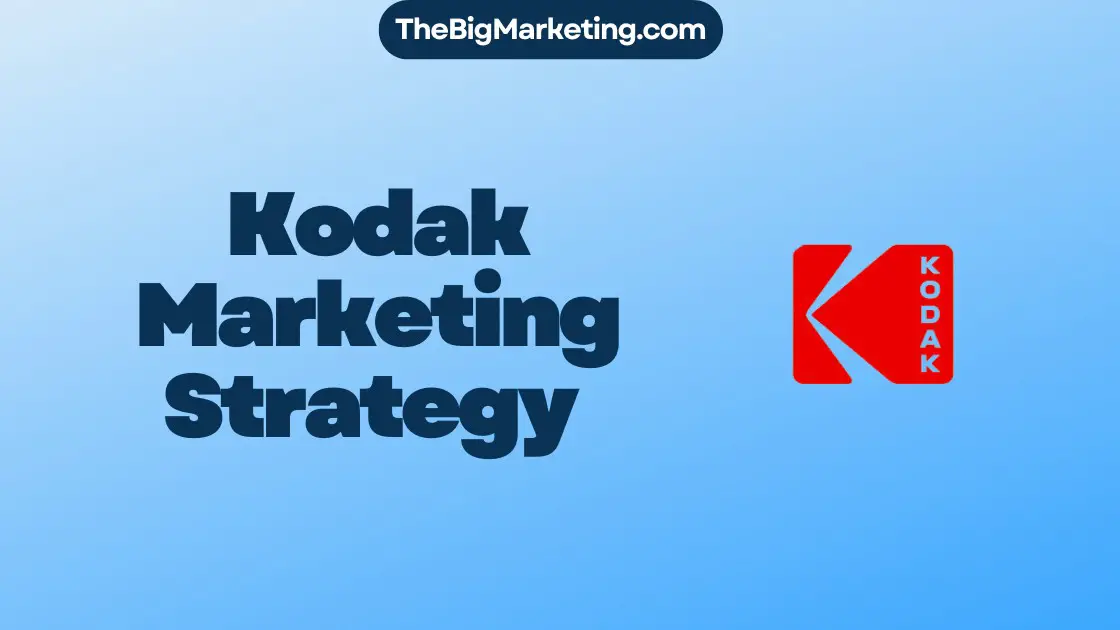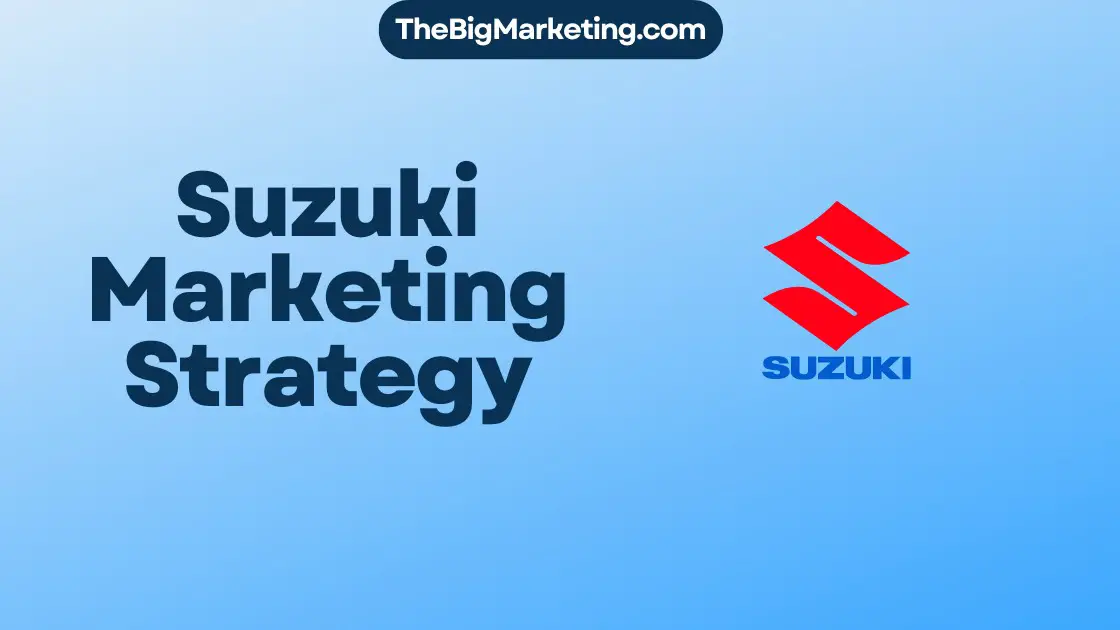In 2024, the skincare industry is experiencing rapid growth and evolving consumer preferences. To stay competitive, brands need to adapt their marketing strategies. This comprehensive guide explores the latest skincare marketing trends and provides insights into effective strategies for brand promotion, product promotion, and overall business growth. Whether you’re a small brand looking to compete with established players or a new entrant in the market, these strategies will help you elevate your brand and captivate the 2024 market.
Key Takeaways:
- Skincare marketing in 2024 requires adapting strategies to meet evolving consumer preferences.
- Effective brand promotion and product promotion strategies are essential for business growth.
- Small brands and new entrants can compete with established players by implementing proven skincare marketing strategies.
- Stay up to date with the latest skincare marketing trends to remain competitive in the market.
- Implementing a comprehensive skincare marketing strategy can help elevate your brand and achieve success.
The Power of Social Media in Skincare Marketing
Social media has revolutionized skincare marketing and is now an essential tool for reaching and engaging with customers. It offers a range of platforms like Instagram, TikTok, YouTube, and Facebook that are highly effective in promoting skincare brands and products.
Instagram Marketing
Instagram has become the go-to platform for skincare marketing. With its visually appealing format and robust engagement features, brands can create compelling content, showcase their products, and connect with their target audience.
TikTok Marketing
TikTok has gained immense popularity, especially among younger demographics. Skincare brands can leverage TikTok’s short-form videos to create engaging and entertaining content that resonates with their audience.
YouTube Marketing
YouTube provides skincare brands with a platform to create in-depth tutorials, product reviews, and educational content. With its vast user base and search engine capabilities, brands can reach a wider audience and establish credibility.
Facebook Marketing
While Facebook may not be as trendy as some other platforms, it still offers tremendous value in skincare marketing. Brands can utilize Facebook’s ad targeting features to reach specific demographics and build a community through Facebook groups.
In addition to these platforms, social media marketing in the skincare industry often involves influencer collaborations. Consumers trust recommendations from influencers, making influencer marketing a powerful strategy for promoting skincare brands and products.
By effectively utilizing social media marketing strategies, skincare brands can connect with their target audience in a meaningful way, foster brand loyalty, and drive business growth.
Embracing Inclusivity and Diversity in Skincare Marketing
In 2024, inclusivity and diversity have become crucial considerations in skincare marketing. Brands that celebrate a wide range of skin tones, hair textures, and body types have a unique opportunity to resonate with a diverse audience and contribute to a more inclusive beauty culture. By embracing inclusivity and diversity in their marketing campaigns, skincare brands can attract a broader customer base and foster a sense of belonging and representation.
Representation Matters
One of the key beauty industry trends in 2024 is the growing demand for diverse representation in skincare ads. Consumers are seeking authentic advertisements that reflect their own unique identities and experiences. By featuring models and influencers from various backgrounds and with different skin tones, brands can create a more inclusive and relatable image. The impact of such representation goes beyond marketing and helps build a sense of empowerment and recognition among consumers. It sends a powerful message that all skin tones are beautiful and deserving of quality skincare products.
An Inclusive Approach
Inclusive skincare marketing involves developing products and campaigns that cater to the needs of all skin tones. This means creating formulations that work well for diverse skin types and offering a range of shades to suit various complexions. Brands can also provide educational content that addresses the specific concerns faced by different ethnicities and skin tones. By prioritizing inclusivity in product development and marketing strategies, skincare brands can foster a more positive and empowering experience for all consumers.
Unleashing the Power of Diversity
Skincare brands that embrace inclusivity and diversity can enjoy several benefits. Firstly, they can attract a wider customer base by resonating with consumers who have traditionally been underrepresented in the beauty industry. This can lead to increased brand loyalty and word-of-mouth referrals. Additionally, diverse representation in skincare marketing can help brands build a stronger connection with their audience, fostering a sense of trust and authenticity. Consumers appreciate brands that value and celebrate diversity, and by doing so, skincare brands can position themselves as leaders in the industry.
By embracing inclusivity and diversity in skincare marketing, brands have the opportunity to make a positive impact and create a more inclusive beauty culture. From diverse representation in skincare ads to offering products that cater to all skin tones, inclusivity should be at the core of every skincare brand’s marketing strategy.
| Benefits of Embracing Inclusivity and Diversity in Skincare Marketing |
Key Strategies for Inclusive Skincare Marketing |
|---|---|
| 1. Attracting a broader customer base | 1. Feature models and influencers from diverse backgrounds |
| 2. Building brand loyalty and trust | 2. Develop inclusive product formulations and shade ranges |
| 3. Fostering a sense of empowerment | 3. Provide educational content for different skin tones and ethnicities |
| 4. Positioning as an industry leader | 4. Collaborate with diverse content creators and influencers |
Leveraging Technology in Skincare Marketing
In today’s rapidly evolving skincare industry, technology is revolutionizing the way brands market their products. Skincare technology opens up new possibilities and enhances the customer experience. Here, we explore three key areas where technology is driving positive change: augmented reality, social commerce, and personalized marketing.
Augmented Reality in Skincare Marketing
Skincare technology has introduced augmented reality (AR) experiences that allow customers to virtually try on products. With AR, customers can visualize how a particular skincare product will look on their skin before making a purchase. This not only reduces the hesitation associated with online shopping but also enables customers to make more informed decisions. The ability to virtually try on products enhances the overall customer experience and boosts confidence in online purchases.
Social Commerce in Skincare Marketing
Another significant advancement in skincare marketing is social commerce integration. With the rise of social media platforms, skincare brands can now reach their target audience directly and facilitate seamless transactions. Social commerce enables customers to discover, explore, and purchase products without leaving their preferred social media platforms like Facebook, Instagram, and TikTok. This integration streamlines the customer journey, making it more convenient and accessible than ever before.
Personalized Marketing in the Skincare Industry
Personalized marketing powered by AI algorithms is transforming the skincare industry. Skincare brands can now analyze customer data and preferences to tailor product recommendations based on individual needs. By understanding each customer’s unique skincare concerns, brands can offer personalized solutions that resonate with their target audience. This level of personalization enhances customer satisfaction and loyalty, ultimately driving business growth.
| Benefits of Skincare Technology | Key Features |
|---|---|
| Enhances customer experience | – Augmented reality virtual try-on experiences – Social commerce integration with social media platforms – Personalized product recommendations |
| Boosts customer confidence | – Visualizing skincare product results before purchase – Seamless and convenient social commerce transactions |
| Improves brand engagement | – Interactive and immersive customer experiences – Better understanding of individual skincare needs |
By leveraging skincare technology, brands can stay ahead of the competition and meet the evolving needs of their customers. Augmented reality, social commerce, and personalized marketing provide skincare brands with innovative tools to enhance their marketing strategies and build stronger connections with their audience. As technology continues to advance, the possibilities for skincare marketing are endless.
Sustainability and Eco-Friendly Initiatives in Skincare Marketing
In today’s ever-evolving consumer landscape, sustainability has become a crucial consideration for skincare brands. As more individuals strive to make eco-friendly choices, brands that prioritize sustainable practices and promote eco-friendly values stand out in the market. From utilizing sustainable packaging to using cruelty-free skincare products and ethically sourced ingredients, these environmentally conscious initiatives are key to attracting and retaining customers who seek products with a purpose.
By incorporating sustainability into skincare marketing strategies, brands not only differentiate themselves from competitors but also appeal to the growing segment of environmentally conscious individuals. Consumers are increasingly seeking out eco-friendly skincare brands that align with their values and contribute to a more sustainable future.
To effectively communicate and showcase these eco-friendly practices, brands can leverage various marketing channels. Social media platforms like Instagram and YouTube provide opportunities to highlight sustainable packaging, cruelty-free certifications, and the traceability of ethically sourced ingredients. Sharing the brand’s commitment to sustainability through educational and engaging content can help increase awareness among target audiences and foster brand loyalty.
Collaborating with sustainability influencers and partnering with environmental organizations can further amplify a brand’s eco-friendly messaging. By aligning with influencers who champion sustainable living and authenticity, brands can reach a wider audience and foster trust in their commitment to eco-friendly practices.
Key Benefits of Sustainable Skincare Marketing:
- Appeal to environmentally conscious consumers: By prioritizing eco-friendly practices, brands can connect with consumers who are mindful of their environmental impact and seek sustainable alternatives.
- Brand differentiation: In a competitive skincare market, sustainability serves as a unique selling point that sets brands apart from their competitors.
- Builds trust and brand loyalty: Consumers appreciate brands that align with their values and are more likely to develop long-term relationships.
- Raises brand reputation: By showcasing commitment to sustainability, brands can enhance their reputation and position themselves as industry leaders in eco-friendly skincare.
- Mitigates environmental impact: By adopting eco-friendly practices, skincare brands can contribute to a more sustainable future and reduce their carbon footprint.
In summary, integrating sustainability and eco-friendly initiatives into skincare marketing strategies is essential for brands looking to thrive in today’s market. By highlighting the use of sustainable practices, cruelty-free products, and ethically sourced ingredients, brands can attract environmentally conscious consumers and establish themselves as leaders in the eco-friendly skincare movement.
Influencer Marketing in the Skincare Industry
Influencer marketing has become a powerful strategy within the skincare industry, allowing brands to tap into the potential of social media and reach their target audience in an impactful way. By collaborating with skincare influencers, brands can leverage their influence and engaged following to create authentic and relatable connections with consumers.
One effective approach is to form beauty influencer partnerships, working with influencers who have a dedicated and niche audience within the skincare community. These partnerships enable brands to showcase their products to a highly targeted demographic, increasing the likelihood of resonating with potential customers.
While macro-influencers with large followings may seem like an obvious choice, micro-influencers and nano-influencers can also play a valuable role in skincare influencer marketing. These influencers may have smaller followings compared to their macro counterparts, but they often boast higher levels of engagement and stronger relationships with their audience. This level of trust and connection can have a significant impact on brand perception and ultimately drive conversions.
Why Micro and Nano-Influencers Matter
Micro-influencers and nano-influencers can be particularly effective in promoting skincare brands due to the authenticity and relatability they bring to their content. Their smaller following allows for more meaningful interactions, fostering a sense of community and credibility.
With their niche expertise and highly engaged audience, micro-influencers and nano-influencers can provide personalized recommendations and skincare tips, reflecting the genuine experiences of real skincare enthusiasts. This level of authenticity resonates with consumers who appreciate transparency and seek trusted opinions when making purchasing decisions.
By partnering with micro-influencers and nano-influencers, skincare brands tap into a network that is deeply connected to their target demographic. This targeted approach ensures that marketing efforts are reaching individuals who have a genuine interest in skincare, increasing the likelihood of converting them into loyal customers.
In conclusion, influencer marketing is a powerful tool in the skincare industry, enabling brands to connect with their target audience on a personal level. By collaborating with beauty influencers, particularly micro-influencers and nano-influencers who have engaged and niche followings, skincare brands can build trust, reach a wider audience, and ultimately drive business growth.
User-Generated Content in Skincare Marketing
User-generated content (UGC) has become an invaluable asset for skincare brands in their marketing efforts. This type of content, created by genuine users who truly love the products, serves as a powerful tool to build trust and create a sense of community and authenticity. Customer reviews, photos, and videos shared by satisfied customers provide social proof, showcasing the positive experiences and results they have had with the brand’s skincare products.
By actively encouraging customers to share their experiences with the brand and products, skincare brands can establish stronger connections with their audience and attract new customers. The genuine voices and experiences of real customers hold immense value and influence potential buyers, helping to build credibility and trust. UGC campaigns, often featuring branded hashtags and offering incentives, further enhance the reach and impact of user-generated content.
By incorporating user-generated content into their marketing strategies, skincare brands can tap into the power of social proof and create a strong sense of community around their brand. This not only builds trust but also fosters brand loyalty, as customers feel a sense of belonging when their experiences are shared and celebrated. The visual nature of skincare products makes UGC particularly effective, allowing potential customers to see the real results and benefits others have experienced.
The Impact of Customer Reviews and Testimonials
Customer reviews and testimonials play a crucial role in skincare marketing. Positive reviews and testimonials can significantly influence purchasing decisions, as they provide firsthand accounts of the product’s effectiveness and user experience. Skincare brands can leverage these reviews and testimonials in their marketing campaigns to showcase the satisfaction and positive results their products deliver.
One effective strategy is to feature customer reviews directly on product pages, allowing potential buyers to see the positive feedback right where they are considering making a purchase. Additionally, skincare brands can create dedicated sections on their websites or social media platforms to showcase customer testimonials and success stories. This not only provides social proof but also demonstrates that the brand truly cares about its customers and values their feedback.
Skincare brands can also collaborate with influential customers, or micro and nano-influencers, who have a loyal following and are known for their skincare expertise. By partnering with these influencers, brands can amplify the impact of user-generated content and create a ripple effect of positive experiences and recommendations.
The Role of Social Proof in the Skincare Industry
Social proof holds great significance in the skincare industry. As consumers face an overwhelming number of skincare options, they seek reassurance that they are making the right choice. User-generated content, including customer reviews, testimonials, and before-and-after photos, serves as powerful social proof for skincare brands.
When potential customers see that others have had positive experiences with a brand’s products, it instills confidence and helps alleviate doubts. By incorporating user-generated content into their marketing efforts, skincare brands can provide the social proof that potential customers need to feel confident in their decision to choose their products over competitors.
Overall, the integration of user-generated content in skincare marketing is a proven strategy to build trust, engage with the audience, and attract new customers. By leveraging the power of customer reviews, testimonials, and social proof, skincare brands can create a strong and authentic connection with their target audience, ultimately driving business growth.
Education and Empowerment in Skincare Marketing
As the skincare industry continues to evolve, brands are realizing that successful marketing goes beyond simply promoting products. In 2024, the focus is on education and empowerment, as skincare brands seek to position themselves as valuable sources of knowledge and expertise.
One way brands are achieving this is by creating educational skincare content that provides valuable information to consumers. By offering tutorials, skincare routines, and beauty tips, brands can empower their customers to make informed choices about their skincare regimen. For example, a brand may provide step-by-step tutorials on how to properly cleanse, tone, and moisturize the skin, along with tips on addressing specific skin concerns such as acne or aging.
This educational content serves multiple purposes. First, it builds brand credibility by showcasing the brand’s expertise and commitment to customer education. By positioning themselves as trusted authorities, brands can establish long-term relationships with customers who appreciate the valuable information provided.
In addition, educational skincare content helps to build trust with consumers. By offering tips and advice, brands show that they genuinely care about their customers’ skincare goals and are invested in helping them achieve their desired results. This builds a level of trust that goes beyond simply selling products.
By prioritizing education and empowering their customers, skincare brands can differentiate themselves in a crowded market and become trusted advisors to their target audience. This approach not only fosters brand loyalty but also contributes to the overall well-being and confidence of consumers as they navigate the world of skincare.
Skincare Brand Research and Analysis
Before launching a skincare marketing strategy, thorough research and analysis are crucial to understanding the competitive landscape, consumer preferences, and industry trends. By gaining insights into the skincare market, conducting competitor analysis, and understanding the target audience, skincare brands can develop effective strategies that align with market demands.
Skincare Market Research: Conducting in-depth skincare market research is essential for understanding the current industry landscape and identifying market opportunities. This research involves analyzing market size, growth trends, key players, and consumer behavior. By staying updated with the latest market research, skincare brands can make informed decisions and adjust their strategies accordingly.
Competitor Analysis: Analyzing competitors is crucial to identify their strengths, weaknesses, and positioning strategies. By studying competitor marketing campaigns, product offerings, pricing strategies, and distribution channels, skincare brands can gain valuable insights to differentiate themselves in the market. This analysis can also help identify untapped market segments and opportunities for growth.
Target Audience Analysis: Understanding the target audience is essential for developing targeted marketing campaigns. Analyzing demographics, psychographics, and consumer behavior can help skincare brands identify their ideal customers’ preferences, needs, and pain points. This analysis guides the creation of personalized messages, content, and product offerings that resonate with the target audience.
Skincare Industry Trends: Keeping up with the latest skincare industry trends is essential for staying relevant and innovative. By monitoring industry trends such as new product innovations, emerging technologies, sustainability initiatives, and consumer preferences, skincare brands can adapt their strategies to meet changing market demands. This analysis ensures brands are at the forefront of industry trends and can cater to evolving consumer needs.
By conducting comprehensive skincare brand research and analysis, skincare brands can position themselves strategically in the market, develop effective marketing strategies, and gain a competitive edge. This research not only helps brands identify opportunities for growth but also ensures they understand their target audience and can deliver meaningful value to consumers.
Conclusion
In conclusion, the skincare industry in 2024 is witnessing rapid growth and transformation. Skincare brands that want to thrive in this dynamic market must adopt effective marketing strategies to navigate the challenges and seize the opportunities. By embracing various elements such as social media, inclusivity, technology, sustainability, influencer marketing, user-generated content, and education, skincare brands can elevate their marketing efforts and drive business growth.
One of the key factors for success in the skincare industry is conducting thorough research and analysis. By understanding the evolving skincare industry insights, analyzing competitors, identifying target audience preferences, and staying abreast of the latest market trends, brands can better cater to customer needs and develop strategies aligned with market demands.
Skincare marketing strategies must revolve around engaging customers through social media, creating inclusive and diverse campaigns, leveraging technology to enhance the customer experience, promoting sustainability and eco-friendly practices, collaborating with influencers, harnessing the power of user-generated content, and providing educational content to empower customers.
Building a strong foundation in these areas will enable skincare brands to position themselves as leaders in the industry, gain customer trust, and drive business growth in the competitive skincare sector. By continually adapting and refining their strategies based on market insights and customer feedback, skincare brands can thrive in the ever-changing landscape of the skincare industry in 2024 and beyond.



